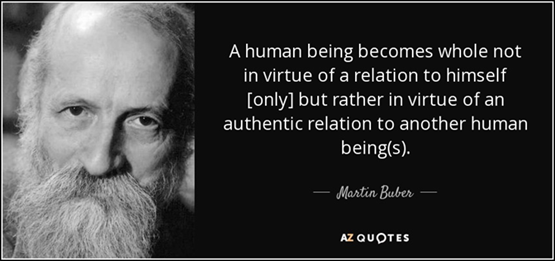
These are indeed hard times for the vast majority of humankind. And the times are troubling for a number of reasons.
First, communities, nations, and the planet face the possibility of extinction of all life forms. Warning signs are seen everywhere: drought, fires, heat, cold, and the prospect of large swaths of land being flooded by global warming. And as has been the case for hundreds of years, the greatest threats and immediate suffering is impacting particularly on the peoples and lands of the Global South.
Second, despite years of wise counsel, mass movements, campaigns, and demands, the danger of nuclear war continues. Indeed, many experts and peace activists believe the danger of nuclear war is as serious now as at any time since 1945. Ironically, leaders of the G7 countries meeting in Hiroshima now are discussing what amounts to further fueling the war in Ukraine.
Third, along with these two life-threatening issues, every country and people have experienced poverty, inequality, anomic violence, and weakening educational and health care institutions, Pundits from the Global North report on food, health care, and educational deserts. But because a small number of conglomerates control more and more of what we know, what might be called media deserts reduce the possibility of people having knowledge about the crises facing them, their communities, and the planet. The metaphor of the “desert” speaks to the scarcity of peoples’ access to information about the viability of human life.
Fourth, and to some extent “the good news,” masses of people are rising up angry within the United States and around the world. Workers, students, people of color, women, and other oppressed groups are making their voices heard. And in some places movements have been impactful. In the United States elections have mattered: some for good, others for evil. And, in general, if the planet survives, so-called minorities will be majorities by 2050 (the rightwing fears this referring to what it calls “replacement theory”).
Fifth, one manifestation of people rising up angry is a new emerging sensibility and organizations coming from “the Global South.” The Global South, an imprecise construct, consists of all those peoples, territories, and nations that have been victimized by capitalism for hundreds of years. Today leaders of governments of various ideologies from the Global South have organized around trading zones, dedollarization and new military security arrangements, and the construction of new international organizations. They have revitalized demands for a New International Economic Order and a New World Information Order.
But sixth, while people are rising up angry all across the globe (and in the belly of the beast the United States), they are doing so in an array of competing organizations characterized by a multiplicity of ideologies, issue priorities, and even multiple interpretations of the historical past and the present. As so often happens, many of these organizations claim that they are prepared to lead to a new world order. Organizational interest and individual egos get in the way of the broader project; that is saving humanity.
And this is part of the context of “Left” organizing in the United States today. It leads to raising again questions of our history, tactics and strategy, elections, street heat, and education.
Therefore, a number of issues of strategy, tactics, and thought need to be reexamined.
First, sectors of progressive movements use a catch-all term, “fascism,” to describe those political forces that are reactionary in vision and policy. The word “fascism” provides a kind of release for sincere frustrations but is counter-productive for a variety of reasons. The term is usually not defined. The user and the target of the label logically think of Germany and Italy before World War II, but it is unclear that a comparison of the US political context today with the European countries in the interwar years is apt. Further, the concept usually suggests an inextricable connection between corporate control of the economy, an autocratic state, an armed mass movement and a racist ideology. While elements of these unfortunately exist in the US today the economic and political context is much more pluralistic than was the case in the 1930s in Europe.
Most importantly, the fascist label is resented and opposed by the targets of such a label. If the goal is to organize masses of people, particularly those who have become economically and politically marginalized by the system, such labeling creates enemies not friends. And polling data has shown repeatedly that majorities of Americans support progressive social and economic policies and even to some degree racial justice.
From the pre-civil war period until today approximately 20-25 percent of Americans have held and hold reactionary and white supremacist perspectives. Recent data suggests that some 45 percent of voters identify as Democrats, a few percentage points less Republicans, and about ten percent independents. Those who identify as independents have been less likely to vote. While reports of political surveys vary, the point is that the electorate and those who hold political views are varied and contradictory. And we should always keep in mind that the corporate media communicates, portrays, and sometimes exaggerates violence as the norm.
Second, much research suggests that there does exist a “politics of resentment” across the country, a resentment of alienation, powerlessness, and recognition that wealth and power are grotesquely unequal in its distribution. Often this resentment leads people to find solace in demagogues or more often to choose to not participate in what they regard as an unfair system.
The politics of resentment in this country led the Roosevelt Administration and the Democratic Party to begin to address real sources of economic pain and suffering in the 1930s. The Democratic party of the New Deal, The Fair Deal, and the Great Society was built around addressing some of the economic and political needs of the people. And as a result, on the national level, the Democratic Party became the majority party.
But in the 1970s, the Democratic Party tilted toward neoliberalism, primarily policies of austerity and deregulation of the corporate sector, a neoliberalism that was fully institutionalized in the 1980s Reagan Revolution. And it is important to note that the Reagan Revolution was sanctified by the Clinton/centrist wing of the Democratic Party which has become the dominant faction of that party ever since.
In short, there has been an inextricable connection between the rightwing thrust of national and state politics in the United States and the shift of the Democratic Party away from the New Deal tradition. For today and tomorrow, demanding a return to the reforms of the New Deal/Great Society period provides the only way to defeat the Right.
Labeling extremists as fascists, ridiculing Trump and MAGA, and rewriting narratives of US history will not defeat reaction. Only a progressive agenda will. And those progressives in the Democratic Party, in the labor movement, and among the sectors of the Left must demand that their candidates uncompromisingly stand for economic and social justice. For sure, there exist vital and popular movements around healthcare for all, women’s rights, the right to form unions, climate change, increased voting rights, support for public institutions such as schools, libraries, and transportation systems, immigration reform, and underlying each an end to the long, painful, and immoral history of racism in the United States.
Finally, and this is critical, a careful review of twentieth century US history shows that domestic and foreign policies are connected. In critical periods, US foreign policies have been used to crush progressive politics at home. As historians such as Joyce and Gabriel Kolko, William Appleman Williams, Gar Alperovitz and others have shown there was no Soviet threat to US national security when President Truman warned of the “international communist threat” in his famous Truman Doctrine speech of March, 1947. But there was a threat at home. That threat was a strong, militant labor movement that sought co-equal input in the making of public policy.
In addition, from 1947 until 1991 the “communist threat” was the device used by policymakers to weaken or destroy a progressive and pro-labor agenda at home, and with decolonization around the world from the 1950s through the 1970s, socialist militancy all around the Global South.
Most importantly United States foreign policy became the rationale for trillions of dollars being spent on the military, creating images of diabolical enemies in education and popular culture, and normalizing the idea of war.
All this suggests that a progressive agenda in the years ahead requires:
1.A systematic progressive economic and political program that prioritizes the fulfillment of human needs.
2.A unified political movement that organizes around this program or at least building an alliance of Left groups that share this common vision even as they work on particular issues.
3.A grassroots organizing strategy that in word and deed does not prematurely identify critics with pejorative labels. Certain sectors of the population already embrace a progressive agenda, others are not yet decided, and a smaller percentage have embraced rightwing fascism. The task of the left should include mobilizing those who agree, convincing the unconvinced, and finally respectfully seeking to change the minds and actions of the minority who are reactionary (including those who believe only violence will protect them).
4.A progressive movement that reaches out to, participates with, and learns from the literally millions of people that are rising up all across the globe. At this stage in human history the campaigns of people of color and various nationalities in the Global South matter. And these movements parallel those of the poor and oppressed in the United States as well.
5.Finally prioritizing in this progressive project an anti-militarist, anti-war agenda. It is clear that the “permanent war economy” constructed after World War II robbed the world’s citizens of resources and hopes for a better future. A just world is a disarmed world, a world of peace.
By Harry Targ




Add new comment